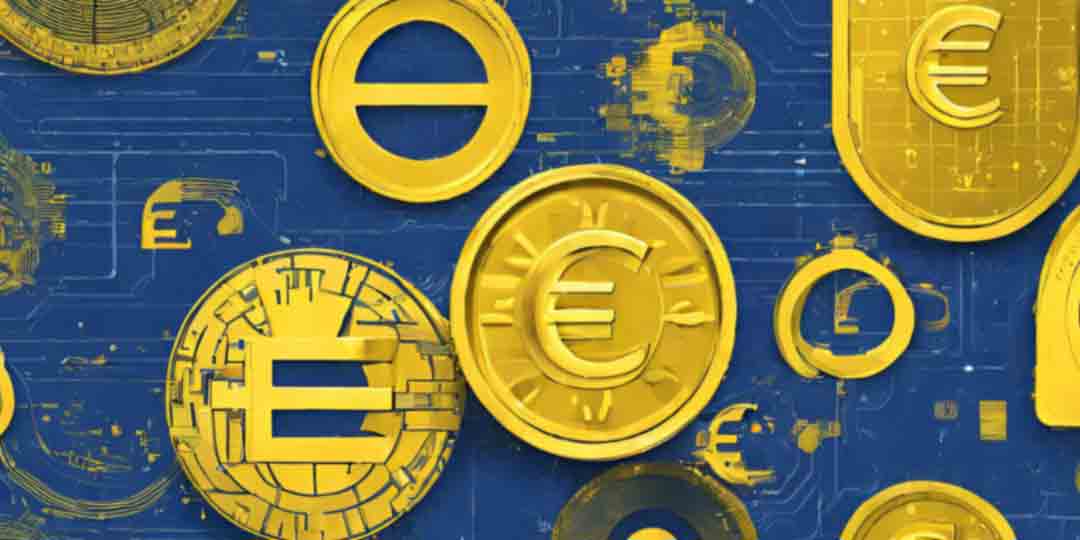
As the world continues its inexorable march into the digital age, central banks across the globe are exploring the concept of digital currencies. In this era of cryptocurrencies and blockchain technology, one currency has been generating a lot of curiosity and interest - the digital Euro.
In this article, we aim to answer some of the most frequently asked questions about the digital Euro to help you understand what it is, why it is being considered, and what it could mean for the future of finance.
What is the Digital Euro?
The digital Euro is a digital representation of the Euro, the official currency of the Eurozone, which comprises 19 of the 27 European Union member states. Essentially, it's a form of electronic money issued by the European Central Bank (ECB), designed to be used in digital transactions.
Why is the Digital Euro Being Considered?
The digital Euro is being considered for several reasons:
Adapting to the Digital Age: In a world where digital payments and cryptocurrencies are gaining popularity, central banks like the ECB want to ensure that the Euro remains relevant and accessible.
Payment Efficiency: A digital Euro could enhance the efficiency of cross-border payments, making transactions faster and cheaper.
Financial Inclusion: It could help improve financial inclusion, providing a digital alternative for those without access to traditional banking services.
How Would the Digital Euro Work?
The digital Euro would function much like physical cash but in electronic form. Users would have a digital wallet to store and manage their digital Euros, which they could use to make payments, both online and offline. The technology underpinning the digital Euro is still under discussion, with possibilities ranging from a centralized ledger maintained by the ECB to blockchain technology.
What Would Be the Advantages of the Digital Euro?
According to the European Central Bank, the advantages of the digital Euro are manifold:
Security: Digital Euros can be designed with advanced security features to protect against counterfeiting and fraud.
Efficiency: Digital transactions are typically faster and cheaper compared to traditional banking methods.
Financial Inclusion: The digital Euro can help reach underbanked populations and improve their access to financial services.
Cross-Border Transactions: It could streamline cross-border payments within the Eurozone.
[iframe width="560" height="315" src="//www.youtube.com/embed/cNJis8BEieo?si=A2HmOvErdu4hjRaM"]
However, the launch of a digital European currency is also raising major concerns.
What Are the Concerns Surrounding the Digital Euro?
While the digital Euro would offer several benefits, there are major concerns to address:
Privacy: The use of a digital Euro might raise privacy concerns as it can be tracked more easily than physical cash.
Cybersecurity: Ensuring the security of digital wallets and the digital Euro network will be crucial to prevent hacking and fraud.
Centralization: Some individuals worry about the centralization of a digital Euro and the power it could give to central banks.
Centralization, in particular could, according to some, end up creating a sort of Chinese Social Credit as stated by incyber.org in 2022
Moreover, while the bills are ready, politicians are not convinced was explaining coindesk.com in juin 2023.
Will the Digital Euro Replace Physical Cash?
The introduction of the digital Euro is not meant to replace physical cash entirely. Instead, it's expected to coexist with traditional currency. The digital Euro aims to offer an additional payment option rather than replacing existing ones.
When Will the Digital Euro Be Launched?
The preparation phase, which starts in November 2023, will focus on further preparing for the development of a digital euro. It builds on the findings from the investigation phase conducted by the European Central Bank.
Finally, Digital euro could be in circulation by 2027, as hilighted by thebanker.com
Shaping the future of currency
The digital Euro is an exciting development in the world of finance, reflecting the growing need to adapt to digital payment methods. While it offers numerous advantages, its implementation also raises questions about privacy, security, and centralization. As central banks continue to explore this concept, the digital Euro has the potential to play a significant role in shaping the future of currency and finance in the Eurozone and beyond. Stay tuned for further updates on this innovative financial development.